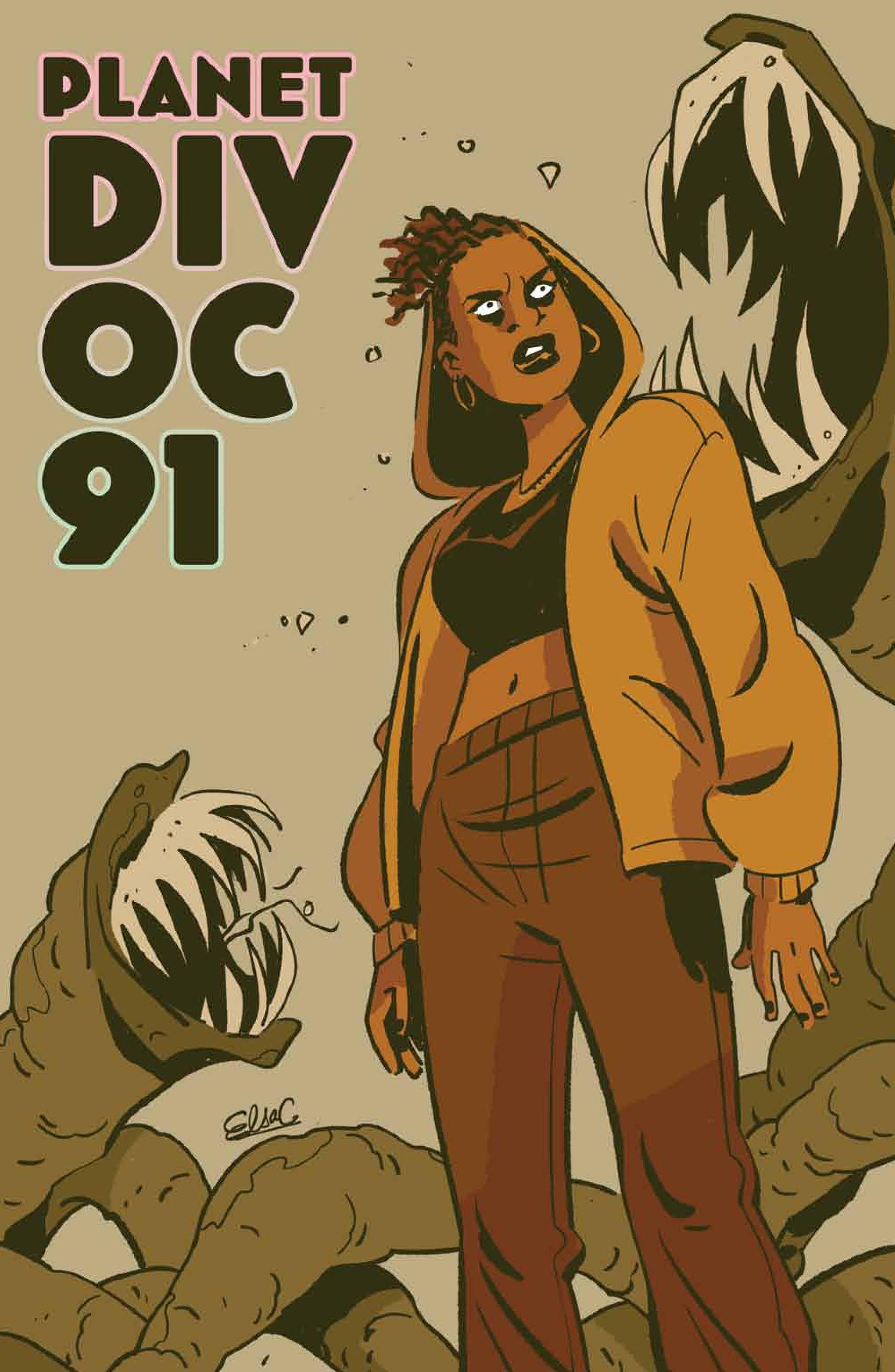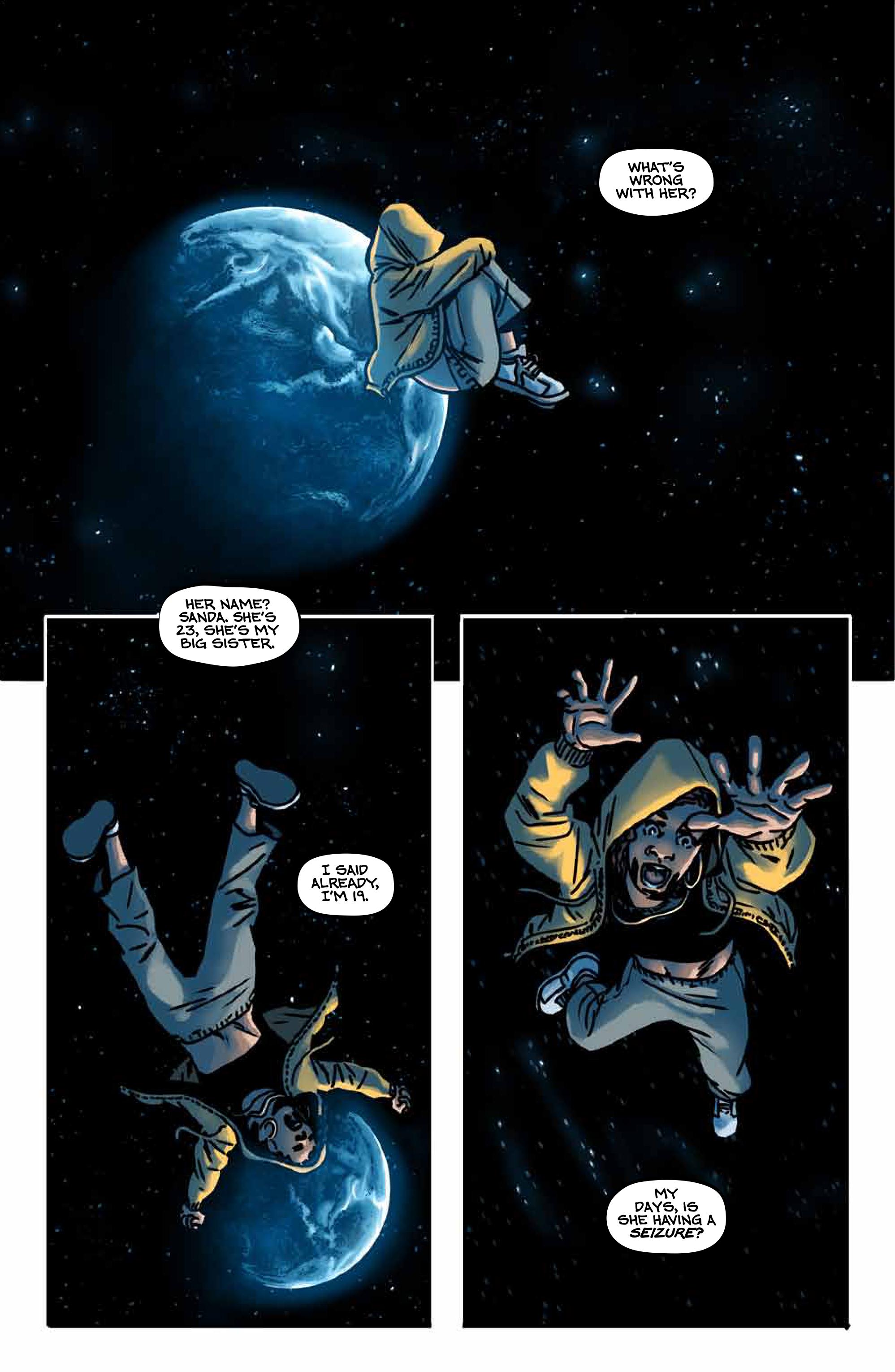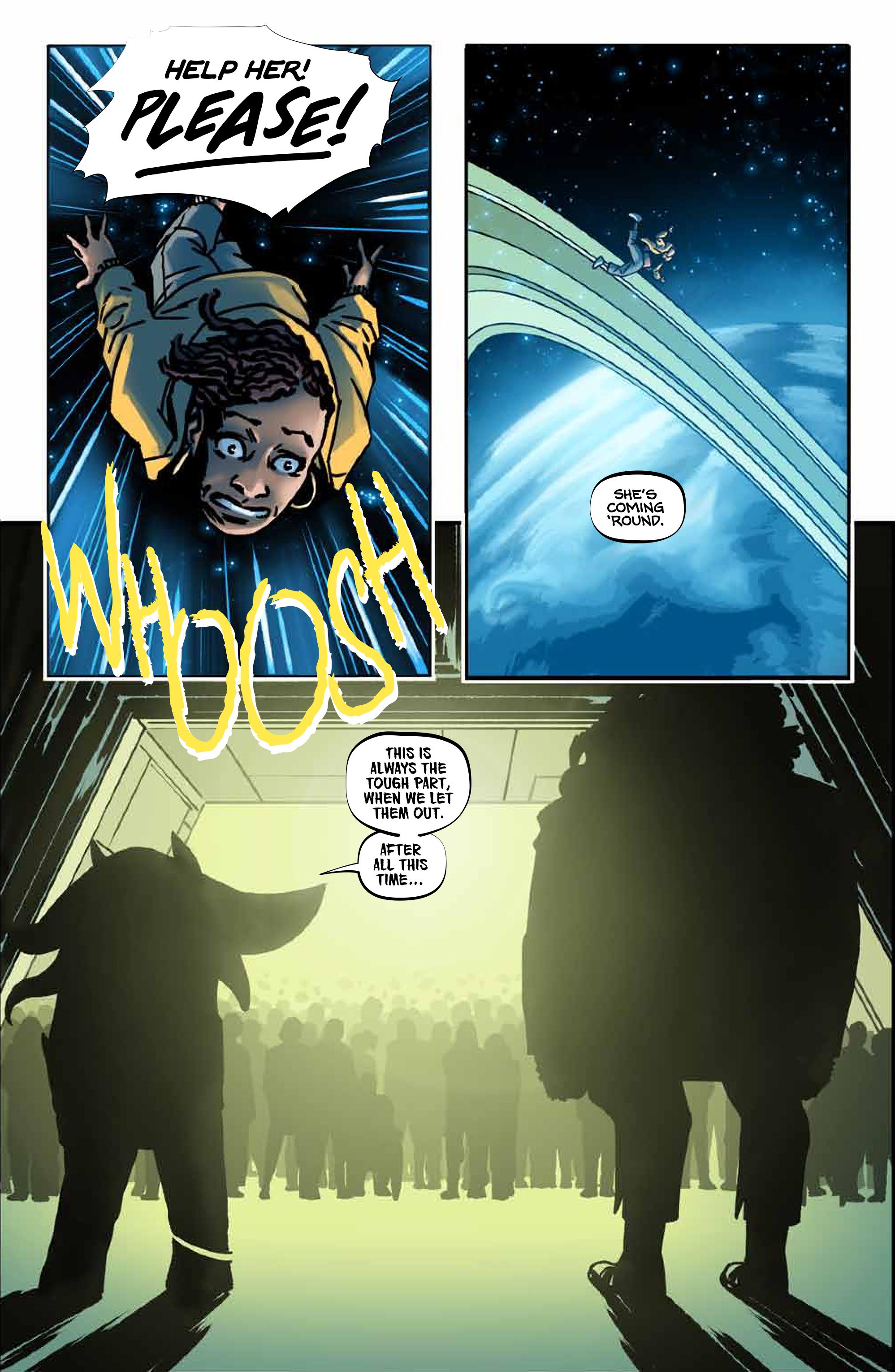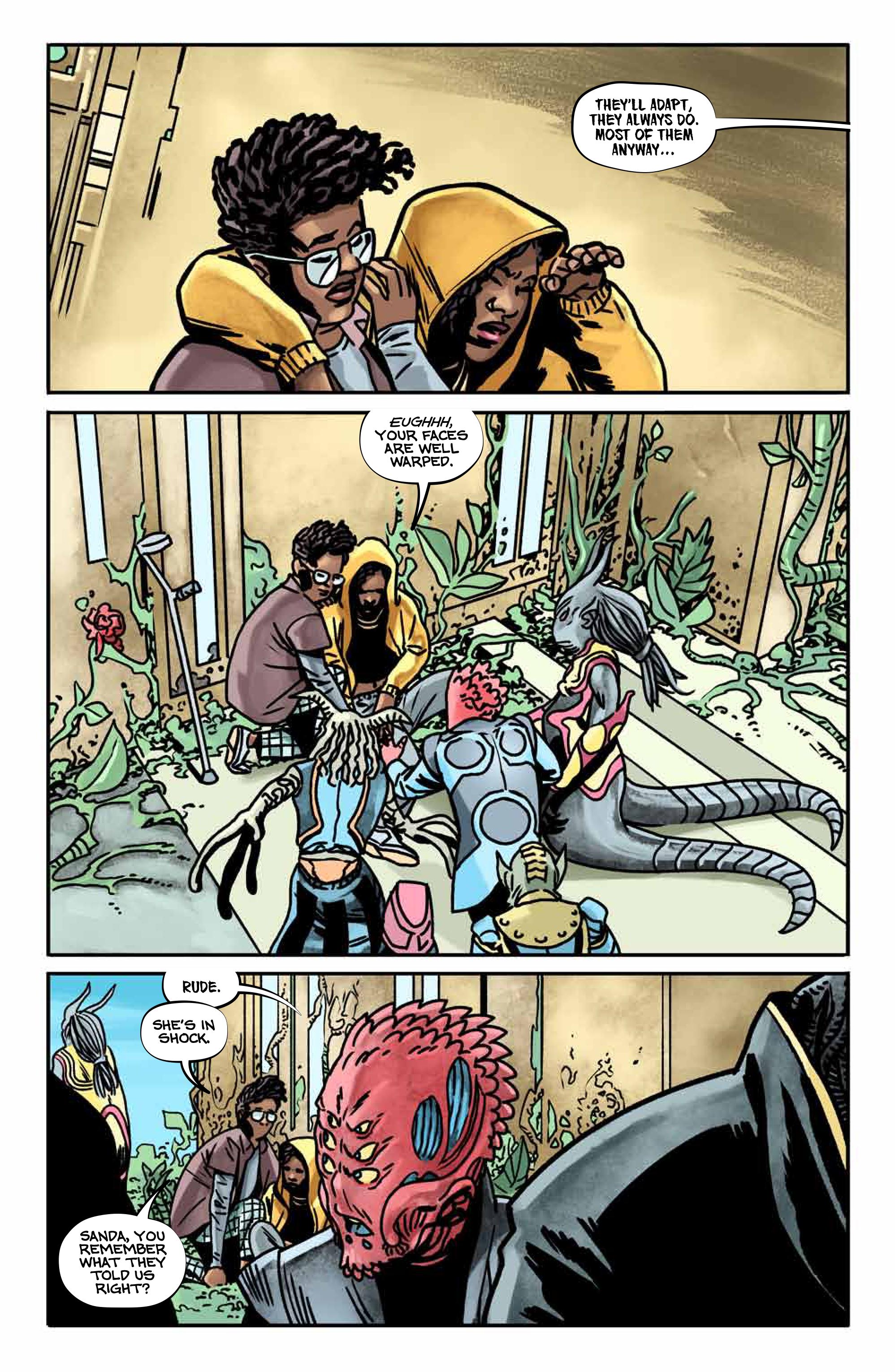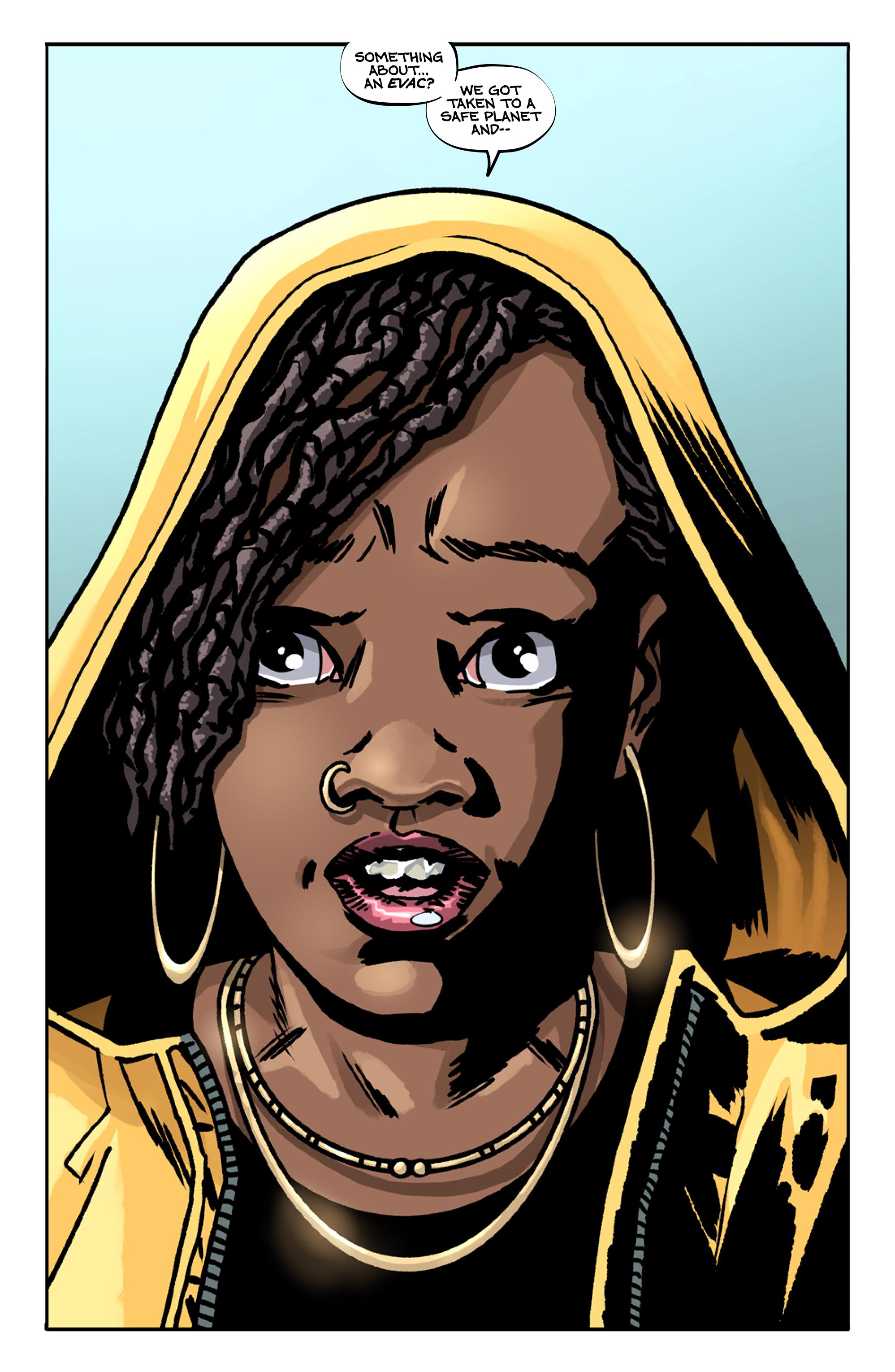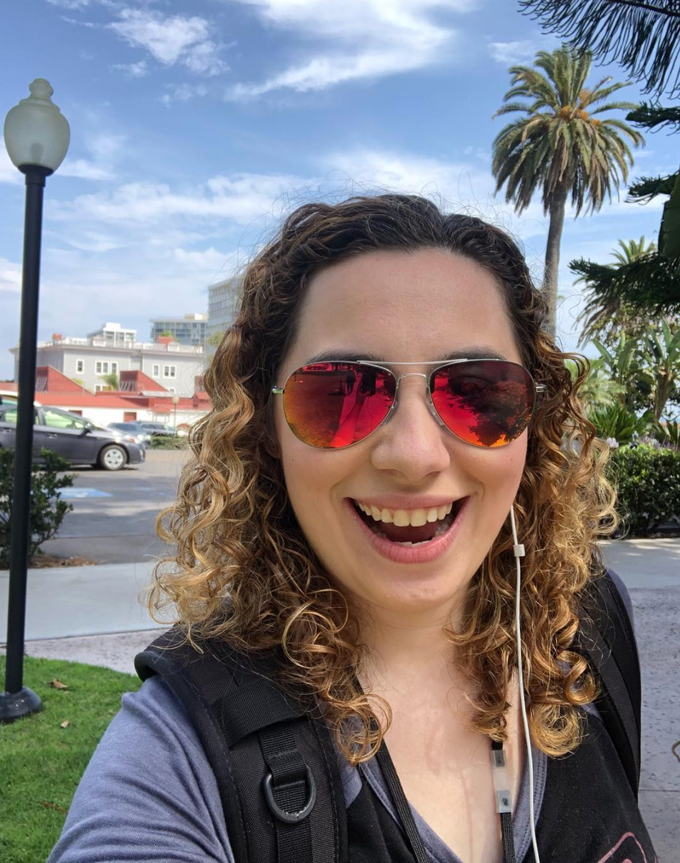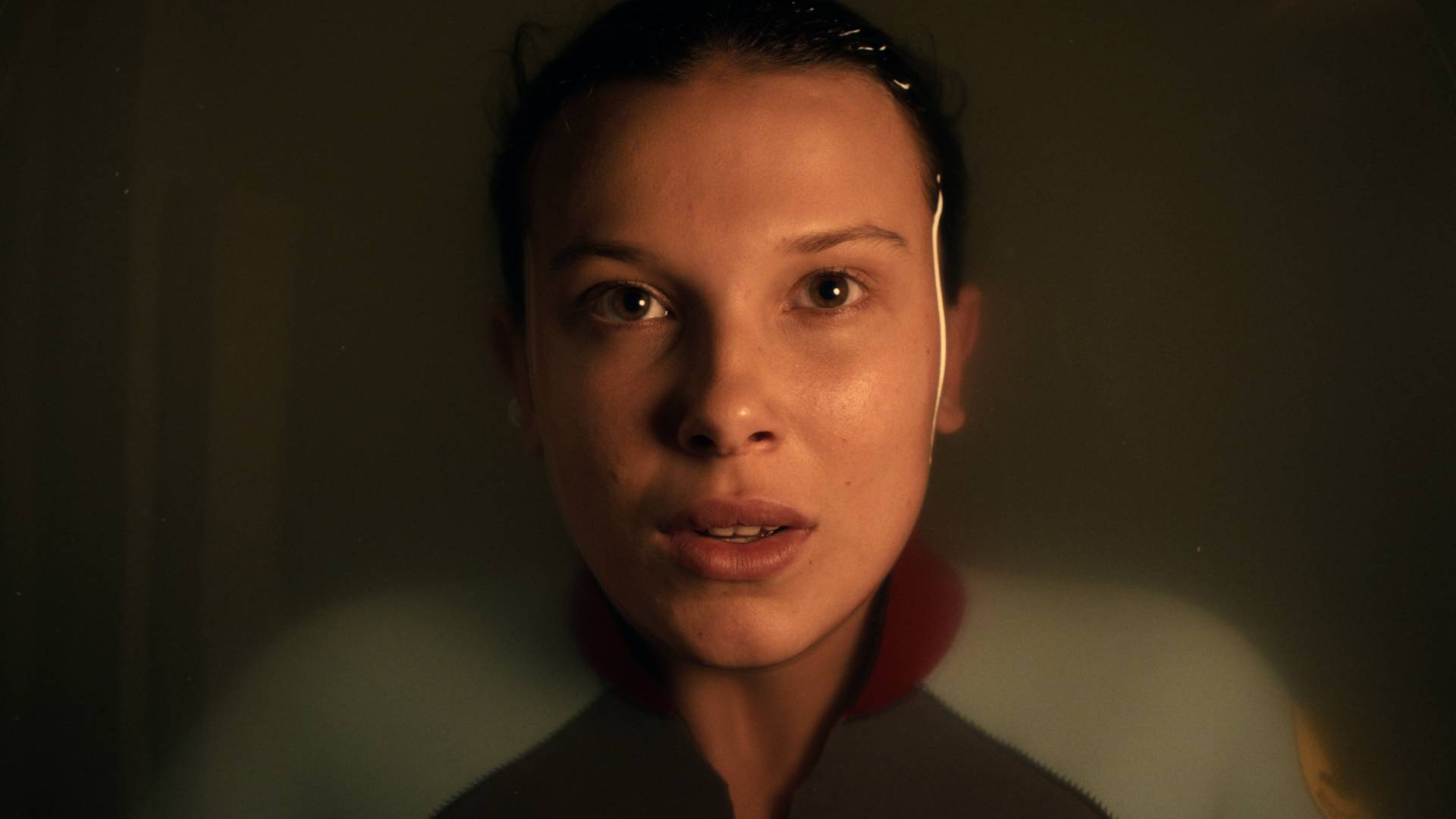Walking Dead artist Charlie Adlard returns to post-apocalyptic storytelling to help the real world with Planet DIVOC-19
After a 14-year run on The Walking Dead, the UK artist dives back in
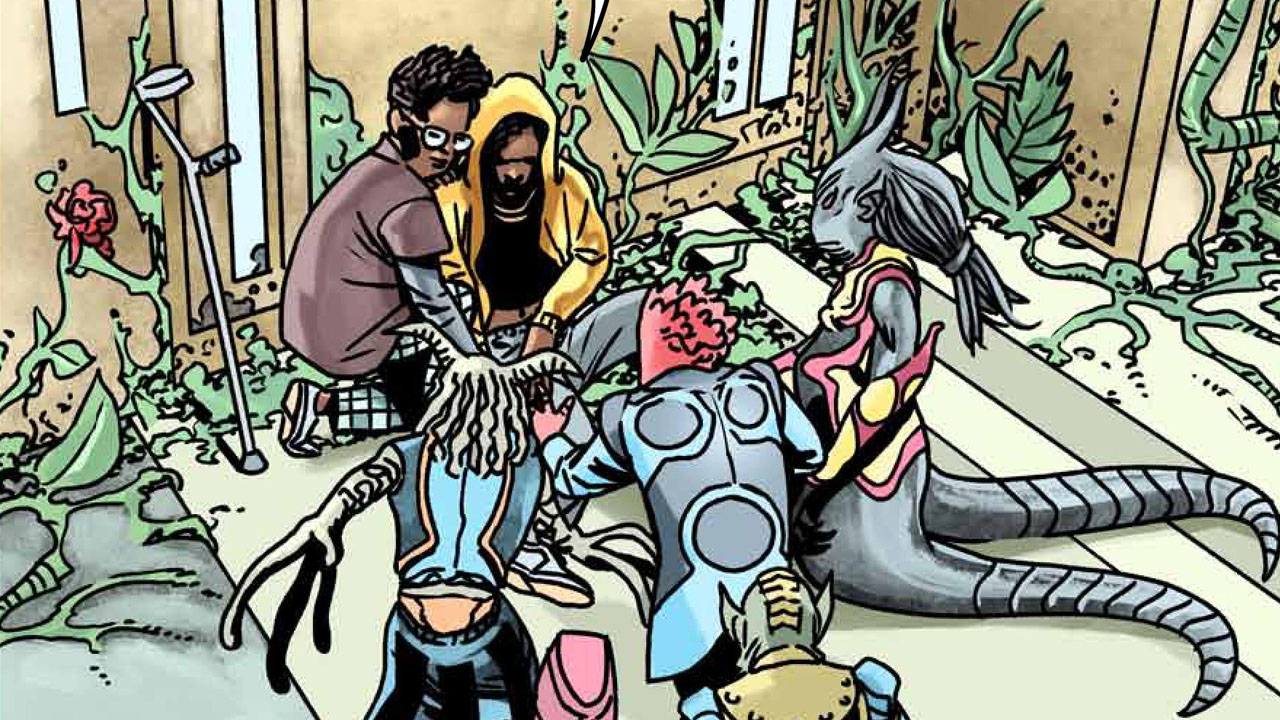
Charlie Adlard just finished a sixteen-year, uninterrupted run on The Walking Dead drawing one kind of apocalypse; what would lead him to want to go back and draw another one?
He wants to help the real world now as a real-life pandemic looms.
Adlard has drawn the opening chapter of Planet DIVOC-19, a digital-first comic series about a pandemic that leads humans and extra-terrestrials to inhabit a new planet together, terraformed for their needs.
One part sci-fi and one-part satire, Planet DIVOC-19 is supplemented with short articles, links to videos, additional artwork by young adults about issues relating to COVID-19 - you know, in the real world.
The comic book is being organized by writer/editor Sara Kenney and several of the United Kingdom's top medical science organizations, including the National Health Service (NHS).
With the nine-part anthology debuted this week on Webtoon, Newsarama spoke with Adlard about his involvement in the project, working in the Webtoons format, and his own feelings about health care in his country - and yours.
Newsarama: Charlie, to jump right in, tell us the process of getting this project off the ground.
Get the best comic news, insights, opinions, analysis and more!
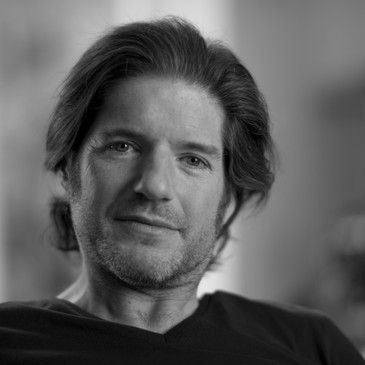
Charlie Adlard: This was a project born in our own pandemic. All of this was done mainly end of April and all of May. Since we went into lockdown, middle of March, you sit here in your studio; life for me hasn't changed that much. I'm sure you've talked to many comics people who've said exactly the same thing. I've been joking ever since this pandemic and the lockdown started it’s like well, I've been self-isolating personally for the last 28 years - working from home, etc.
You've got your government telling you to stay indoors, you're helping the NHS and certainly helping our health system by staying indoors. But you're just sitting there in your little bubble just getting on with life, nothing's changed much. You're quite happy, whereas the world's gone to shit around you, and you start thinking, well, there must be more than just sitting here.
We had a scheme in the UK where you could sign up and be an NHS volunteer for instance, when the lockdown started, and I considered that. And then I heard from a friend whose wife had signed up and yet she just sat at home waiting to hear on the phone. This volunteer scheme never really took off. Well, thankfully it never took off because it was obviously not needed as much as we assumed, which is a good thing.
But I still felt useless. So, when Sara phoned me up and said that they were doing this thing, would I be interested? Of course, I said, yes, because it felt like I was doing something proactive and there's nothing better than being proactive in a situation like this. It just made me feel useful in some small way - contributing towards helping out.
Of course, things got crazy because literally three things all came in at once.
Within that week, I had: DIVOC-91 from Sara; my friend Frazer Brown, was getting together this big charity project called Tales from the Quarantine, which I instantly said yes to as well; then, of course, finally Negan Lives.
So, I went from sort of sitting around just casually working on my latest project to being maniacally busy juggling three different charity projects.
Nrama: You said that your life hasn't changed too much in regards to the quarantine, but do you feel like your creativity has changed at all with the way our world is?
Do you have any advice for creators who might be struggling during this time to create?
Adlard: Advice? I mean, the thing is I'm speaking from an enormous privileged position. I'm totally aware of that because The Walking Dead, it's no secret, has done okay for me and Robert. So, financially I'm fairly secure. So, something like the pandemic didn't really affect my work psychology.
I was already working on a project with my writing pal, Robbie Morrison, a book called Heretic, which sounds irreverent, but we were casually doing it anyway. So, I had stuff to do. But I'm, obviously, very much aware that there are plenty of people out there in the creative community where projects fell through. They would just sort of sit there literally at their drawing boards, twiddling their thumbs, wondering where the next work will come from.
Advice as somebody else? You just got to get through it. I don't know. It's just a horrible, horrible, horrible situation, which thankfully I didn't experience. I joke that I've been self-isolating for 28 years, etc. But the truth of the matter is it's all very well saying that, but if you're self-isolating and the work isn't coming in it's not much fun.
God, I 100% sympathize and feel slightly guilty now for saying what I just said because I’m totally aware that there are people financially suffering in my business. Which is why DIVOC-91 was taking on a broader charity remit, where obviously with something like Negan Lives was very targeted to help our industry.
I very much wanted to embrace directly helping my own field and also very interested in the broader audiences that didn’t have to be specifically targeted to the comics industry.
Nrama: To touch upon the book itself, what can you tell us about your chapter you contributed to the story?
Adlard: Sara, who wrote the chapter I worked on – the opening chapter... I've been with this right from the beginning. What they tried to do is something all-embracing as possible. Involving young adults as well, in the inception of the storyline of the comic itself, providing inspiration for us to do it.
What I find the most interesting was adapting to a completely new format that I wasn't really aware of, which is Webtoon. I'm a 53-year-old, more traditional comic artist, so I was very dimly aware of Webtoon, to be honest - until we started this project. It was very interesting to delve into that and see how that was formatted, how it was done.
Things like this, always shock me by how many people read it compared to should we say the 'official' comics industry. So yeah, to go for that broad audience was quite interesting. That was really interesting to see how I could format my artwork to fit this different way to read comics.
Nrama: Why did you feel Webtoon was the best platform for this?
Adlard: For what Sara has said to me, it's a very good way of engaging a certain demographic. If you want to go as broad as possible with something like this. You want it to have as much impact to generate as much money as possible for the thing it's designed to help.
Loads of people over the years have come to me with various charity comic projects and it’s very limited in your scope if you're just trying to get something published within the American/UK industry because it’s a very, very limited audience. Not everybody of that specific audience is going to read your book. So, you're going to be lucky if you sell 5,000 copies of whatever you do.
These things tend to be anthologies as well, which let's face it in this specific industry doesn't do as well as your 22-page formatted American style, single character comic books. So really doing something for Webtoon just makes complete sense if we can get the maximum impact. Again, from what I'm told because I’m new to this end of the industry is that this is where a lot of kids read comic books.
I would argue this isn't actually comics. I would actually argue that it's more like an illustrated narrative because of the format in which you read – the vertical scroll. It's almost like illustration followed by text, it takes away certain things that only comics can do, which is the ability to see a whole page - six or seven panels or how many panels are on the page. You can see it as a whole and then read it afterwards, which is incredibly unique - only comics can do that.
WebToons doesn't do that. You are literally reading a single panel each time as you scroll upwards. You read it more like a book. It's kind of an interesting process. I still used all my comic skills to do the lot, storytelling didn't really change, but the way it was read changed. As I keep saying, it's an interesting way of doing it. If millions of people are reading that format, let's go for those millions of people, as opposed to hundreds, you might engage similarly in the more traditional comics' field.
Nrama: Speaking on traditional comics, do you have plans to release this in print for the direct market?
Adlard: Yes, that's the plan. As conscious as I was for formatting for Webtoon I actually did it as proper comics pages as well. So, Sara wrote 15-18 pages, and I did them as pages. She didn't write literally panel one and end on panel 105 or however many panels it was. I literally did it as traditional pages, though there were never more than four panels of page because I was aware that this would be pretty much read on mobile phones.
There was no point in going into extreme detail. Most of the Webtoon I've seen, I did my research, it was almost drawn, like soap opera style. Just headshots and backwards and forwards between different heads between dialogue and everything.
I made sure that all my characters were set on a certain format on each panel, depending on panel shape that you could take those two heads out and format them for a vertical scroll on a mobile phone. In a lot of ways, it’s set up a lot of ways for print.
The irony is doing it specifically for Webtoon. It's actually more print-ready than Webtoon ready. So, the plan is to definitely do it as a printed edition I assume once everyone is done with their chapters.
Nrama: Speaking on the anthology aspect, why did the team want to go that route instead of a serialized story?
Adlard: I suppose one reason is no one's got the time to do a full story. For me, I have a reputation for being fast. I was certainly very speedy on this because it just had to be done ASAP. I did it digitally, which was slightly quicker. Probably, I would think I was doing about three pages at least a day. So, it took roughly a week or so to draw. But even if people are taking longer, it's a lengthy process on the comic.
My chapter was 18 pages long, and then I’m assuming everybody else's chapters are of equal length. That's a hell of a sized comic book if we’re talking five or six chapters.
It's just logistics to get it out on time. I mean somebody could have done it all, but it wouldn't have been able to get it out now if one person was doing it. So, I’m assuming everybody else is working on their chapters concurrently to me and not necessarily finished, but they're ready to go as soon as possible after ours has been released.
Nrama: Why do you think it was important to team up with organizations like the NHS to help health services in the UK?
Adlard: For me it's important because I think the NHS desperately needs to be preserved. From time to time, you forget what a magical thing we have, and we're not the only country obviously that has a national health service, but sometimes we really do take it for granted that we have one, especially when you see other countries, not mentioning anyone specifically, that don’t.
I think it's a real tragedy that certain countries don't have it, especially Western, rich countries don't have it. It just seems like a tragedy. Especially in the last 10-15 years the NHS has always been underfunded. Which is crazy, if there's one organization, which everyone in this country I think realize is so important it's this one. Free healthcare for everybody is just an amazing thing, it's almost like I can't describe it. I'm stammering my way through this anyway, because it's almost so important you can't really describe its importance to society.
When it was formed post-war, it was just this incredible thing that our country has when it's something out of anything that just so needs to be preserved. I'm embarrassed because I'm just finding it very hard to put it into any sort of particularly cohesive words to how important it is. I'm kind of getting a bit tongue tied over it, but I couldn't think of a better cause to be honest.
I suppose at the end of the day, it's a shame. We shouldn't have to have a charity that helps the NHS; the NHS shouldn't need charity to assist it. It should be the responsibility of governments. Unfortunately, in today's society, we as the general public have to step in to preserve this thing and not have governments whittle away and sell it to private corporations.
Nrama: To wrap, why do you think The Walking Dead fans will enjoy this and should jump into the Webtoon format?
Adlard: Hey, it's another one about the apocalypse? The main thing is, it's being written and drawn by comics' professionals, not necessarily Webtoon professionals.
If we're talking about specifically traditional comics book fans, it's not like they're having to readjust not only to a new format, but to new creators who have only been used to drawing on Webtoon. We're a bunch of people that understand storytelling. We understand how comics work exactly. From our point of view, none of us are new to this, none of us are people who this is our first foray into comic books.
Just generally a comic reader should get something out of it hopefully. We're giving you something that's not just been knocked together in a couple of days. I think the story is strong enough to stand on its own two feet without people looking at these contrivances. The fact of getting that feel that it's been rushed out just to help out various organizations and things like that.
Walking Dead fans - 'Hey it's me. It's still me doing the artwork. It's not like I've changed in my style. It's very much worth getting Webtoon for it.'
Kat has been working in the comic book industry as a critic for over a decade with her YouTube channel, Comic Uno. She’s been writing for Newsarama since 2017 and also currently writes for DC Comics’ DC Universe - bylines include IGN, Fandom, and TV Guide. She writes her own comics with her titles Like Father, Like Daughter and They Call Her…The Dancer. Calamia has a Bachelor’s degree in Communications and minor in Journalism through Marymount Manhattan and a MFA in Writing and Producing Television from LIU Brooklyn.
